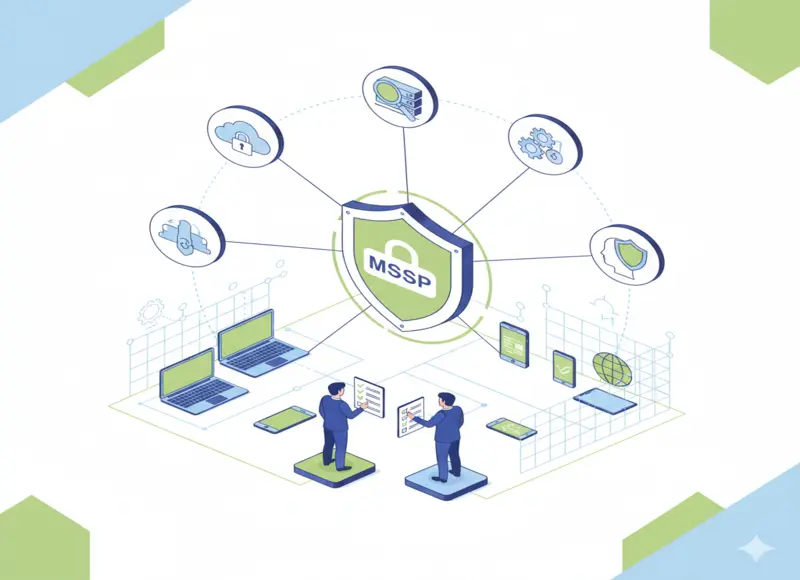Table of Contents
AI is shiny and new, but for secure, verifiable info, Google’s still the grown-up. Learn why it outshines ChatGPT in privacy, compliance, and control, especially with proxy tools.

Key Takeaways
- Google supports proxy servers for secure, anonymous browsing, unlike ChatGPT.
- Proxy-enabled Google searches protect company identities during sensitive research.
- ChatGPT queries risk company data confidentiality by sharing information externally.
- Google provides verifiable, source-based information, avoiding ChatGPT’s potential inaccuracies.
- Using Google aligns better with compliance needs by offering auditable search results.
In the age of generative AI, it’s tempting for employees to swap out Google searches for ChatGPT responses. After all, the integrated ChatGPT can provide quick, conversational answers. However, when it comes to everyday workplace queries, sticking to Google (and its web browser ecosystem) offers distinct advantages in terms of privacy, security, and reliability. Below, we explore two major reasons – from proxy server support to data protection – why Google remains the smarter choice for employees’ day-to-day questions.
Secure, Anonymous Browsing with Proxy Servers in Google Chrome
One benefit people often forget about when using Google — especially with the Chrome browser — is how easily it works with proxy servers. A proxy server stands between your computer and the Internet. This means websites see the proxy’s IP address, not yours, which helps protect your location and identity. In a business setting, this extra privacy is especially valuable. It helps mask the company’s identity and location during online research, crucial for activities like competitive analysis, price checking, or web scraping, where you don’t want your queries traced back to your organization.
In fact, proxies can function like a firewall and privacy filter: they hide your device’s IP and thereby protect your internal network from direct exposure to hackers or tracking by outside entities. This means an employee researching sensitive information or accessing a client’s web portal can do so with reduced risk of cyber snooping or IP-based blocking.
Some key benefits of using proxies with Google include:
Enhanced security:
The proxy serves as a shield between the user and the web. Only the proxy’s IP is visible to the outside world, so bad actors cannot easily target your actual network or glean your location. This reduces the chance of cyberattacks or malicious tracking aimed at your employees.
Geo-flexibility
Many proxy services offer IP addresses in various regions. Employees can appear to be browsing from another country, which is useful for accessing region-specific search results or localized content. For instance, a New York-based analyst can use a European proxy to see Google search results as if they were in France, gaining insights that might be hidden behind geo-restrictions.
Some advanced proxy server providers like Webshare allow you to install a proxy extension directly to the Chrome browser. This means with a few clicks, an employee can equip their Google Chrome with a proxy extension and have all their search traffic automatically routed through a safe proxy network. In practice, every Google query they perform can be protected by the proxy by default. The convenience here cannot be overstated: there’s no complicated setup – it’s a native-like browser feature. An employee in a real estate firm, for example, could use such a proxy extension to anonymously scrape housing prices in different cities without revealing their company’s IP (which could otherwise skew results or alert competitors).
By contrast, ChatGPT’s interface does not support using proxies for its queries. When an employee types a prompt into ChatGPT, that query goes directly to OpenAI’s servers with no easy way to mask the origin. There is no built-in mechanism for routing ChatGPT requests through your own proxy or VPN on a per-query basis. Essentially, employees lose that extra layer of protection – their usage is more transparent, and their company’s network could be identifiable. Moreover, using Google via a proxy means the content of your search (what you’re looking for) stays between you and the search engine results, whereas asking ChatGPT a question means sending the full query and potentially contextual information outside the company. This leads to the next major concern: data privacy and how information is handled.
Protecting Company Data and Avoiding Misinformation
Beyond the technical benefits, using Google for everyday searches can help protect your company’s sensitive data and make sure employees get reliable information. Let’s take a closer look at these risks:
Data confidentiality risks
Anything typed into ChatGPT is transmitted to a third-party (OpenAI) and potentially stored. Unlike Google searches, where queries are generally anonymized and not directly re-shared, ChatGPT queries could become part of the AI’s training data or be seen by human moderators.
Accuracy and information reliability
Another issue is that ChatGPT, while convenient, does not cite sources and can produce incorrect answers with a confident tone. This phenomenon, often called “AI hallucination,” is well documented. The AI might fabricate facts or provide outdated information, and an unsuspecting employee could take that output as truth. Research has shown that ChatGPT’s answers can be wildly unreliable in certain domains – for example, a team at Purdue University found that 52% of ChatGPT’s answers to programming questions contained misinformation or errors.
Compliance and accountability
In many industries, there are also compliance considerations around how information is obtained and documented. Google results provide links to external content that can be cited or archived for compliance. ChatGPT’s answers are generative and cannot be directly attributed to a verified source, which can be problematic if an employee needs to justify where they got an answer. For instance, a financial analyst can’t turn to a supervisor and say, “The info in this report is from ChatGPT” – that wouldn’t fly without source backup. Sticking to Google encourages employees to gather information in a way that remains auditable and transparent.
Conclusion: Why Google Should Remain Your Team’s Go-To Tool
ChatGPT offers quick, conversational answers, but it doesn't have the important safety features that businesses need to collect information safely, legally, and reliably. Google, especially when used with Chrome's proxy feature, gives employees the privacy, flexibility in location, and ability to verify sources that are necessary for responsible online research. The old search engine is still better than generative AI tools for everyday work tasks like keeping company data safe and making sure information is correct.
Encouraging employees to stick with Google not only lowers security risks, but it also helps them make better decisions based on reliable, citable sources.
Recent Blogs
How Upgrading PC Supports AI-Powered Tools and Smart Technology Use
-
30 Jan 2026
-
6 Min
-
269








